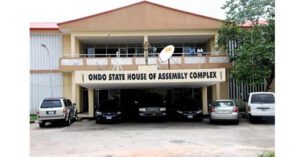
Civil servants express concerns over IPPIS exemption for ASUU members
Civil servants have voiced their concerns over the exemption of university lecturers, who are members of the Academic Staff Union of Universities (ASUU), from the Integrated Payroll and Personnel Information System (IPPIS).
In separate interviews with journalists, these civil servants expressed their reservations about this exemption. The IPPIS was established in 2006 as part of the Federal Government’s reform efforts to improve the storage of personnel records and streamline the monthly payroll administration.
This has led to concerns about transparency and accountability in the payment of salaries and allowances to university lecturers.
The civil servants also expressed their belief that the IPPIS should be implemented uniformly across all government agencies and institutions, including universities.
The Federal Government has been engaged in discussions with ASUU to address these concerns and find a mutually acceptable solution. However, no agreement has been reached thus far.
But over the years, the leadership of ASUU had agitated for the Federal Government to exempt university lecturers from IPPIS and create an alternative payment platform for them.
The agitation by ASUU resulted in an eight-month long strike by the union in 2022.
The Federal Executive Council (FEC), in a meeting on Dec. 13, finally approved the removal of public tertiary institutions from IPPIS.
The Minister of Information, Mohammed Idris, said that the development meant that members of staff of public universities, polytechnics, and colleges of education have been taken off IPPIS. A Civil Servant, Mrs Grace Uzor, said that IPPIS was created to eliminate unauthorised personnel workforce (ghost workers) from government payroll.
According to Uzor, IPPIS was also created to make retrieval of personnel information of all public servants seamless.
She said that allowing the university lecturers to exit the system was unacceptable, adding that the system only needed to be monitored and sanitised.
“If the policy that was put in place to prevent corruption cannot work it is a problem.
“And if any group of people can choose to exit a laid down policy, it also means that there is a problem,” she said.
An accountant, Mr Emmanuel Isa, said that the scheme programmed automatic stoppage of payment to personnel due for retirement as a result of length of service, age and tenure, thus reducing wastage or unauthorised payments.
He said that under the IPPIS, unapplied and unutilised funds were easily monitored and tracked.
“Monthly emoluments are paid to all public servants on the scheme the same day, no matter the location within the country, without delay.
“From all indications, the scheme is good but the Federal Government only needed to sanitise it,” he said.
Another Civil Servant, Abbas Aliu, said that the government should scrap IPPIS if it was no longer desirable, rather than its selective application.
“If IPPIS has not lived up to expectation, it should be scrapped, rather than its selective application, after all we are all employees of the same government,” he said.
A financial expert, Mr Okechukwu Unegbu, said that it was regrettable that even with IPPIS, incidents of ghost workers had not abated.
Unegbu, a past president of the Chartered Institute of Bankers of Nigeria (CIBN), urged the Federal Government to scrap the entire IPPIS system if it was not able to sanitise it and make it function optimally.



